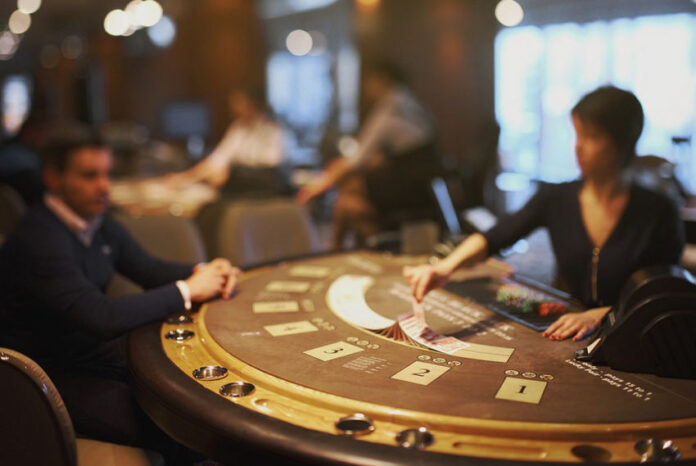The global pandemic has been ongoing for already a year and people from all over the world have been struggling with the outcome of the pandemic. Especially hard for the economy and businesses. People don’t know how to deal with every aspect of a falling economy and don’t know how to have sufficient income in order to save families and jobs.
The struggle is very much real, and during this time, different people have come up with different decisions regarding the business strategies and plans. Some people found salvation in investing, others in trading, and some people in activities. Yet some activities became more popular than others.
With all of the businesses and the majority of the venues closed down for several months already, people are looking for new opportunities to comply with the new regulations and limitations. This had to do a lot with the local as well as international companies, who had to lay off a lot of employees and cut their expenditure costs.
With this being said, people have a lot of free time and can think of various activities. This has also become a very flamboyant period for creative people who turned their ideas and opinion into betting opportunities. Thus, while some bets on very impressive activities are considered to be part of gambling, simply paying for the same ideas is considered investing.
Investing In Quarantine
With more free time due to the Covid-19 quarantine, access to superannuation funds, and accessible low-cost brokers, many people have started investing in shares at a time when markets are particularly unpredictable and volatile. Internet stock chat rooms are buzzing with stories of substantial investment gains in a short time.
Some shares have led the recovery with staggering gains, which has led to frenzied speculation among investors who are searching for “the next big thing”. The central banks and the reserve banks have warned people of the potential risks and thus, advised them not to invest in risky stocks and risky activities. Yet, even with this considered, the number of retail broking accounts and trading volumes increased two to three times over the pandemic period.
On the other side, there is the betting industry, which is one of the biggest industries in the world with millions of people engaged in it. The betting industry seemed to stop during the pandemic, as there were no events and no activities going on, due to the regulations. Thus, many punters were left with nothing, for quite a long time.
Though, with the restrictions being lifted, the bets became a thing once again. The betting operators have admitted that they have accepted the weirdest bets, which were previously not even considered. Many punters have found a safer method of betting, which is betting with the cryptos. And still, betting on sports with Bitcoin is less attractive and less popular than betting on the vaccination period or the date of opening the borders.
While the investing culture is still the same, and the experiences of the investors and the punters are very similar to each other, there are two possible results, whether you win, or you lose. And yet, spending the same amount of money can be considered as two different activities.
Betting vs Investing
The casino always wins, the same goes with the betting operators. In trading, there are winners and losers. Historical data suggests that trading retail investors lose more often than they win, as there are casino professionals who know more than the typical retail investor playing the same “game”, selling when others are buying, and vice versa. So day trading is like walking into a casino of sorts. In gambling, the casino is there to prevent you from winning. The house edge may vary between games, but ultimately it always wins.
A big difference between investing and gambling is concentration risk. Like gambling, day trading typically involves a bet, investment on one or a small number of companies over a short time. As such, the upside may be high, but there is also the risk that underperformance by only one of the “bets” can significantly drag down the returns of the overall portfolio.
Timing the market is hard. Sharemarkets can be highly unpredictable and irrational in the short term, as we’ve seen in recent months. Remember, each time you make a decision that buying a share of Company X will pay off, someone on the other end of the trade who has probably done a lot of research is “betting” that it’s best to sell the stock. Even so-called experts have a hard time timing the market, so the average punter stands little chance of winning in the very short-term.
So if picking stocks and timing the market is so hard, how do you grow your wealth over time? That’s where investing is different from gambling. Successful investing is built on several foundations that differ from simple gambling:
Time and patience. Investing is a long-term process. When you invest, you’re betting that the global economy and sharemarkets will grow over time, and history shows that over the medium to long term markets generally rise.
They tend to spread their investments across asset classes growth/defensive, regions are domestic/international, and sectors broad equity, infrastructure, technology, health care, etc. This smooths out volatility and investment returns over time, as there will be times when part of a portfolio falls while another part rises.
Day trading by definition can rack up transaction fees, which eat into investment returns. By investing for the long term, there are fewer transaction costs to erode returns. In this regard, ETFs are also effective investment vehicles given their low costs.
There are no guarantees in life or investing nor there are guarantees in betting. While it can be tempting to try to pick winners, the volatility and risks we’ve seen in both markets. So whether it is gambling or betting both are risky activities to have an eye on.

